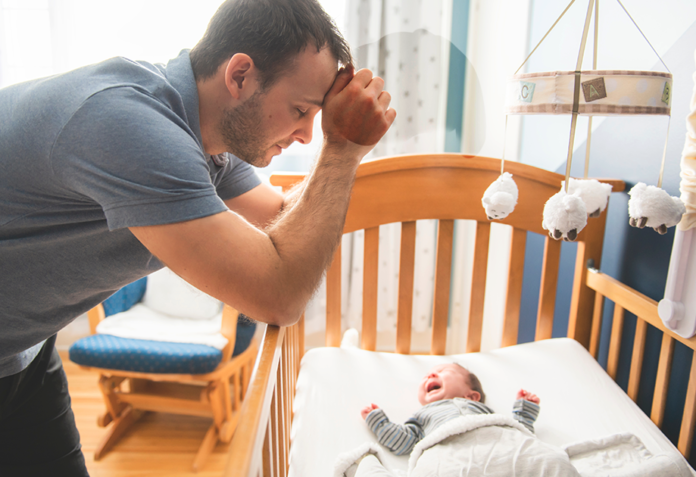“Postpartum depression,” a word commonly associated with new moms, however, also affects many new fathers. In fact, research reveals that 1 in 10 fathers suffer from PPD, just as 1 in 7 mothers do!
According to a 2019 meta-analysis of research, the largest risk of depression for expectant fathers occurred during the first trimester, and as for postpartum depression among fathers, it is highest when the baby is 3-6 months old.
Just like moms, dads go through changes after the little one comes in that are unknown and get unnoticed easily.
It mostly happens because…
Fluctuated testosterone-
After and during a partner’s pregnancy, according to research, fathers experience hormonal changes, particularly testosterone declines.
PPD spreads-
It has been observed that PPD sometimes spreads from mothers to fathers. Up to 50 percent of men with depressed partners show symptoms of depression.
3rd wheeling-
Sometimes dads literally feel that they are “third wheeling” with the new mom and the baby. Mothers, being very busy and involved in bonding and taking care of the newborn, fail to notice the dads getting excluded. Fathers feel as though they are on the “outside” of the mother’s and newborn’s experiences. Even they desire to bond with their little baby!
Adjustment-
A new baby comes with a whole new lifestyle. Most new parents underestimate the role sleep deprivation can play in the development of anxiety and depression symptoms. Additionally, they frequently underestimate how sleep-deprived they are!
Family genetics-
Any personal or familial history of depression or other mental illness increases the risk of prenatal or postpartum depression, even in dads.
Signs…
- Sadness, hopelessness, or a sense of desolation
- Loss of interest or enjoyment in once enjoyable activities
- fatigue or decline in energy
- Problems falling asleep or resting too much
- Changes in appetite or weight
- Anxiety, irritability, and agitation
- Difficulty focusing, recalling specifics, or making decisions
- Suicidal or self-harming thoughts
- Feelings of guilt or worthlessness
If these signs are experienced it is highly advisable to go for a screening of paternal postpartum depression and seek help from a professional. Try to be mindful and mostly show support and love to the dads too!




